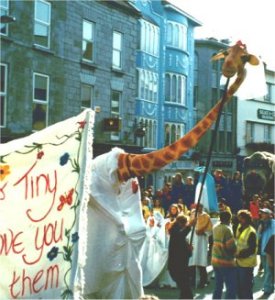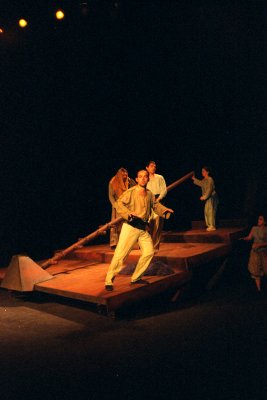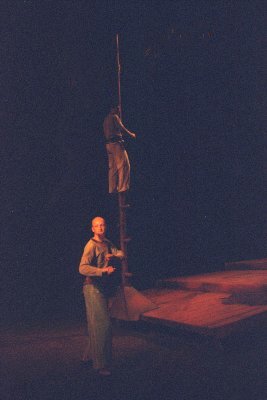I am very careful when I use the term community arts development because it is understood in many different ways. During my Ph.D. work at the University of Missouri, I was very fortunate to have as one of my advisors, Dr. Lee Cary, founding president of the Community Development Society of America. I found myself fascinated with the community development process, but I continually found myself challenging what I saw as an inherent weakness. Community development process is just that, process oriented. It is not that it isn't product oriented, it's just that the process takes precedence over everything else.
During my work in rural and small communities, I have found that most people are very "product" oriented. This is especially true regarding the arts in the United States. We are very product oriented. During one of the many discussions I had with Dr. Cary, I proposed that the term community arts development might be a nice way to bring the community arts product and the community development process together. From that point on in our relationship, everything I have done has been oriented toward this goal.
What I thought was a unique term I thought up was actually a very essential term used by one of the first community arts development thinkers and practitioners, Bob Card. In fact, I became profoundly affected by his work and came to know and love this man. He had a tremendous impact in my life. You will note the introduction to Grassroots and Mountain Wings is written by Dr. Cary and the first major article is written by Bob Gard. The weekend we gathered all of these people together to examine the grassroots and mountains wings of community arts development will go down as one of the great three days of my life.

County Galway Community Arts Network
So, what exactly do I mean by community arts development. Well, for starters, I do not view it as a means to an end. In fact, when the arts are used as a means to an end, namely community development, economic development, tourism, etc., I think it jeopardizes the very nature of what is happening with the arts. The arts must, by definition, point to initial expression by an individual. Everything else that comes about is therefore considered an "indirect benefit" of this experience.
How do we do community arts development?

County Galway Community Arts Network.
